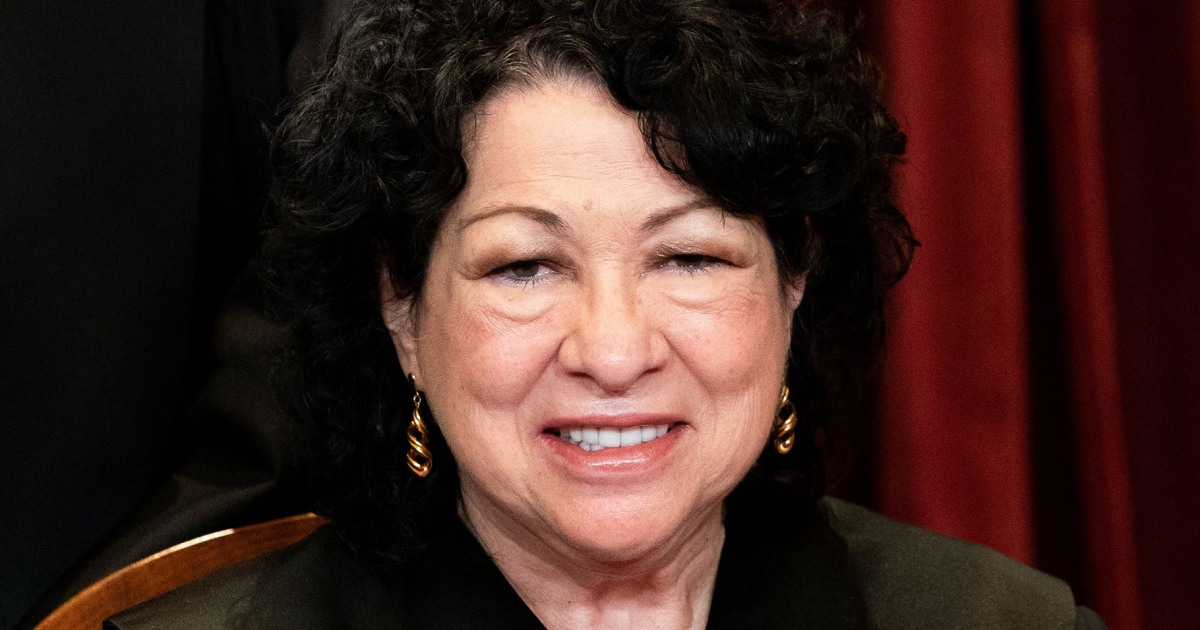Scottish historian Niall Ferguson, in a 2018 photo by Carlos Rosillo
This interview is part of a series of talks with leading intellectuals, editors, activists, economists and politicians who help to describe the state of affairs before the elections.
You can read the other installments here
.
Brilliant, rebellious and provocative, Niall Ferguson (Glasgow, 1964) is one of the most well-known and influential historians in the world.
A professor at Stanford and Harvard, Kissinger's biographer, he is the author of 15 books on foreign policy, the history of economics, and British and American imperialism.
Conservative in ideas, he has been very critical of the Obama Administration and was an advisor to the Republican John McCain presidential campaign.
After a trip to Berlin in the summer of 1989, he predicted the fall of the Berlin Wall.
At a conference in Las Vegas in 2007, while researching for his book
The Triumph of Money
(2008, later turned into an award-winning television series), bet against a financier that there would be a recession in less than five years.
He made $ 98,000.
He also warned, after the United Kingdom will vote for Brexit, that Donald Trump could reach the White House.
And in a column in
The Sunday Times,
last January, he wrote: "Prepare for a coronavirus pandemic."
In this talk with Ferguson for the series of interviews published by EL PAÍS about the US presidential elections on November 3, the first question is therefore a must.
Question.
Who is going to win these elections?
Answer.
Joe Biden is a much less unpopular figure than Hillary Clinton.
The economy is in a hole and, of course, the president has made a major botch with covid-19.
So I think Joe Biden is going to win.
And he is going to win with a wide enough margin so that there is not that great constitutional crisis that is beginning to seem very exciting to many journalists.
I hate coming to that conclusion because four years ago it was fun to be on the counter and hit it.
But as a historian I cannot see how a president in a hole as deep as this can be re-elected.
Even if the pandemic hadn't happened, it seems to me that I wouldn't have been in a particularly strong position.
The economy was accompanying, but was on steroids by fiscal and monetary stimuli.
Trump is not going to be re-elected because the economy is screwed up.
P.
Voters seem to continue to have faith in your economic management ...
A.
But when you look closer, there are two reasons to be skeptical.
First, the margins in states like Wisconsin are huge.
Second, the seniors, who are concerned about the economy and who are crucial to the Republican Party, have lost faith in Trump, in a way that is entirely explicable by the virus.
That seems like a lethal situation for a Republican candidate.
We knew he lost the youth a long time ago, but if you lose the over 65s, especially in contested states, I don't see how you can survive that.
I think Biden's margin in the electoral college will be quite robust.
Q.
What will historians of the future write about the Trump presidency?
R.
First, that the populist backlash in the US was slow in coming, considering how many reasons Middle America had to feel aggrieved.
And that, when he arrived, Donald Trump played a cathartic role in articulating all the frustrations of Middle America.
With globalization, with China, with immigration, with the liberal elites.
There was, therefore, a certain legitimacy that electoral victory in 2016 against a fundamentally complacent Democratic establishment.
Second, Trump's historical significance lies in the fact that he changed the course of US policy toward China.
It broke with a consensus on China that went back to Kissinger and Nixon.
It directed the American public into a completely different frame of mind regarding China, including the Democrats.
That is the most relevant of his presidency.
The second cold war got under way.
America woke up to the fact that there was a Chinese challenge and that it could do something about it.
Q.
Do you think the Democrats have learned a lesson in four years?
A.
They have not understood why Trump won.
And a sad sign of that is that they chose Joe Biden as their candidate.
McCain was finished long before people started voting, because the Democrats had found Barack Obama, who was the epitome of rejuvenated change you could believe in.
This time the Democrats really screwed up.
They have found a candidate so old and weak that he could indeed lose.
That this was the best they could find is a terrible indictment for the Democratic establishment.
That's why this election is still up in the air, because at any moment Biden could lose the election in a debate, in a disastrous performance.
Since Admiral Jellicoe could lose World War I in one afternoon, Biden could lose these elections in one night.
It is absolutely for drag.
And he was vice president with Barack Obama!
The reason Trump was elected is that Obama's second term completely alienated a huge proportion of people who had voted for him in places like Michigan.
That is what they have not learned.
People in the Obama Administration believe that they will return to power in January.
Which tells me that they have not understood why they lost in 2016.
Q.
Will Trumpism survive Trump?
A.
What's amazing about Trump is that his approval ratings have barely budged in four years.
He's trapped in a narrow corridor of popularity and so there is going to be no lasting Trumpism.
Trumpism is not really viable as a long-term electoral strategy for obvious demographic reasons.
If your nuclear base is white guys who haven't been to college, it's a dwindling force.
Whoever comes next is going to have to trash Trump's strategy and bring something broader into his claim.
Q.
Something that appeals to the increasingly important Hispanic vote, for example?
A.
One of the interesting subplots this year is that Hispanic voters are not running after Biden's banner, even though I can't think of anything Trump is doing to attract them.
I think Republicans have an opportunity to increase their support among Hispanics, because there is not much in the Black Lives Matter movement that appeals to Latino voters.
The future of the Republican Party is to attract more Hispanic voters on a range of social issues where the Democratic coalition I think is quite fragile.
Q.
How has the Republican Party become a cult of Trump?
A.
It was like being on a hijacked plane.
What happened in 2016 is that Trump snatched the party's nomination.
If I think back to 2012, I think this country would be in a much less torn place if Obama had been a one-term president and Mitt Romney had been elected.
Romney would not have been a perfect president, but he would have avoided the 2016 revolution among Republican voters, and we would not be in such a divided country now.
Without Obama's second term, it's hard to see how Trump would have been viable as a candidate.
Romney is still there.
McCain died, having been horribly insulted by Trump, something I will never forgive him because I loved John McCain.
Trumpism will be relegated to the Internet or television, it will exist as a thing of entertainment.
The Republican Party will be rebuilding itself for four years and will be greatly helped in that process by the fact that the Biden Administration will screw it up, just like the Obama Administration did.
Q.
You wrote that there is a man who can turn the Second Cold War into World War III, and that man is Joe Biden.
A.
I have observed over a century of American history that often, when Democratic presidents are elected with an important domestic agenda, they end up waging great wars.
It happened to Woodrow Wilson, Franklin D. Roosevelt, Harry Truman, John F. Kennedy, and Lyndon Johnson.
And almost Jimmy Carter too, but he avoided going to war in Afghanistan.
It is only in the recent past that Democrats have been inclined to avoid wars, in the cases of Bill Clinton and Barack Obama.
You could see a scenario where the Biden Administration comes to power ready to do all kinds of spending on social services, education, raising taxes, doing those usual things, and it runs into a crisis over Taiwan.
I think China is going to force that issue at some point.
And the smart time to do so would be right at the beginning of a Biden presidency.
The Second Cold War is structural, it is not of any specific presidency, it is a structural strategic rivalry like the First Cold War, and Biden's main problem is that the Second Cold War will not leave him alone to do his domestic agenda.
You have to look closely at what is happening in Taiwan, what Xi does to legitimize his position and exploit the weaknesses he sees.
Q.
What should be the strategy with China?
R.
I think that the Trump Administration has not been so bad on that front.
I particularly would not have used the tariffs.
But I think that on other issues such as technology, it has been successful in preventing Huawei from taking over the 5G networks of the world.
It has been successful to pressure China for Xinjiang, Hong Kong and Taiwan.
Taken together, my defense of the Trump Administration would be that it was right to take the hard line with China and change course after what had been a kind of fatalistic view from Obama, that there was nothing you could do to stop China. China.
Q.
What about the Middle East?
A.
I think the Trump Administration here too has been much more successful than many Democrats want to believe.
Obama's policy failed because the Iranians pocketed the nuclear deal and remained a hostile regime in all other areas.
Ending that was the right thing to do, and now we see a new alignment connecting Israel with the Gulf states and increasingly isolating Iran.
So you should give the Trump Administration a few points for having chopped up Obama's policy and ended up with something that I think looks a lot better.
Q.
What is at stake in these elections?
R.
I wear out the insistence every four years that they are the most important choices of our lives.
It has become a cliché.
I don't buy into the idea that the republic is in danger and that Trump will entrench himself in the White House.
I think we are going to see the classic story of a one-term presidency.
What is at stake is whether the norms of American politics can be restored or permanently damaged by the last, I would say not four, but eight years.
What is at stake is that if the Democrats win, which I believe they will, and if they win by a lot, which I think they can, they may be tempted to think that the time has come to fundamentally rig the system to their own devices. favor.
Then the midterm elections would be won by the Republicans, and in 2022 we would have a reenactment of what happened to Obama in 2010, who overreacted the first two years and then lost Congress.
What is at stake, something much more modest than what many people say, is whether the Democrats have learned anything from the last eight years.
And I'm afraid not.
Subscribe here to the
newsletter
about the elections in the United States




/cloudfront-eu-central-1.images.arcpublishing.com/prisa/MGXQCRPVF5E7IC2XTMDAP6ZWZ4.jpg)
/cloudfront-eu-central-1.images.arcpublishing.com/prisa/O645Q5IDLJHDPB6BJQCWLA23HY.jpg)

/cloudfront-eu-central-1.images.arcpublishing.com/prisa/E7Z72EJVXA76G7V2QJOUL5JMP4.jpg)







